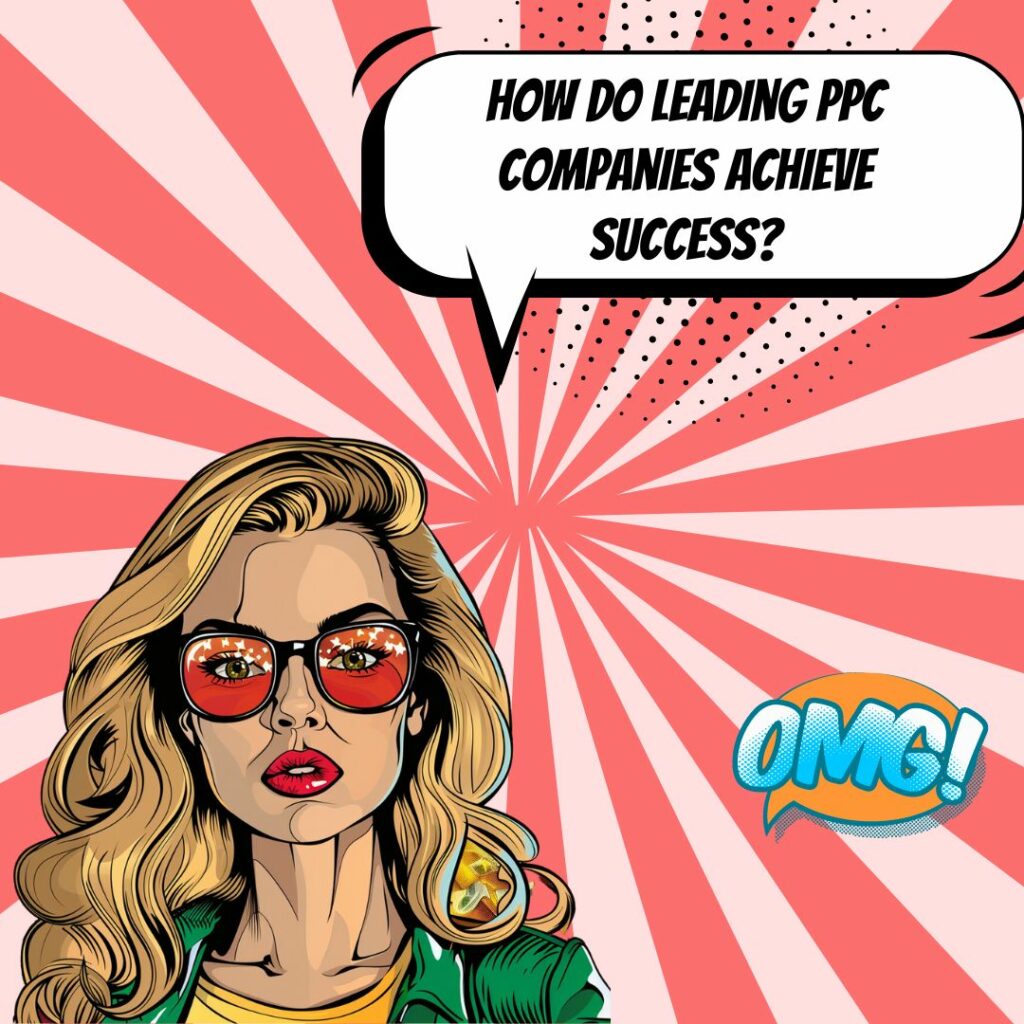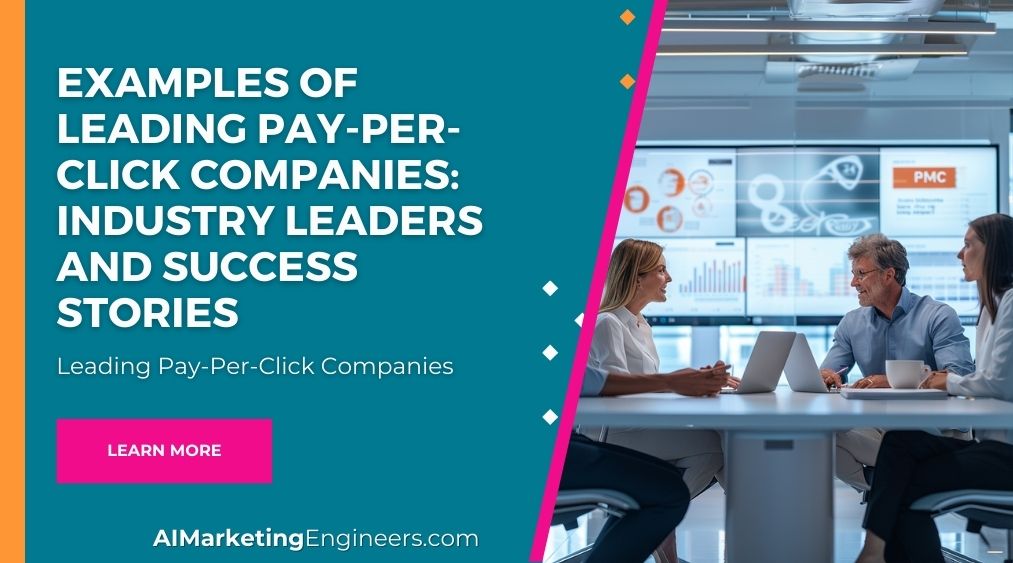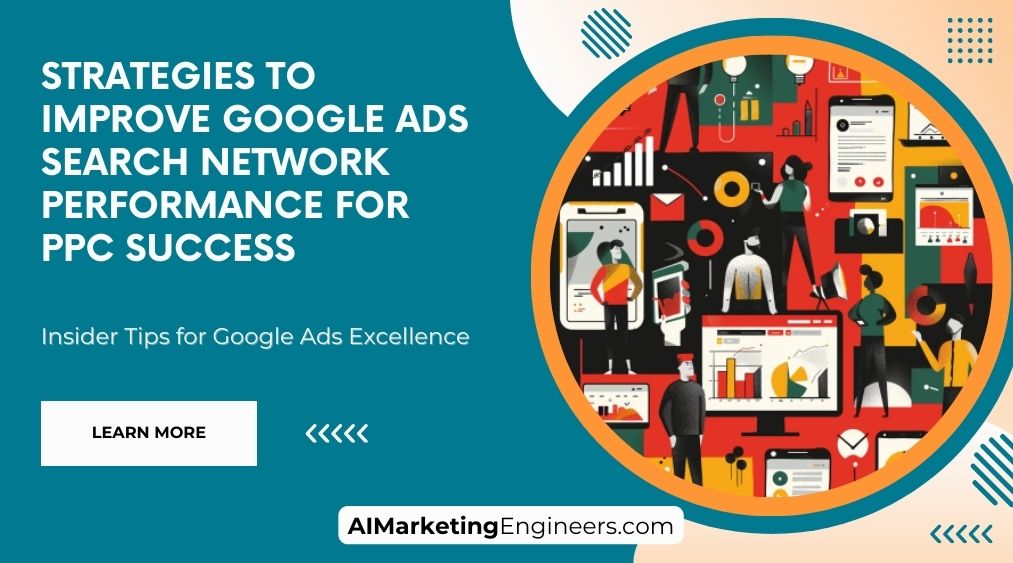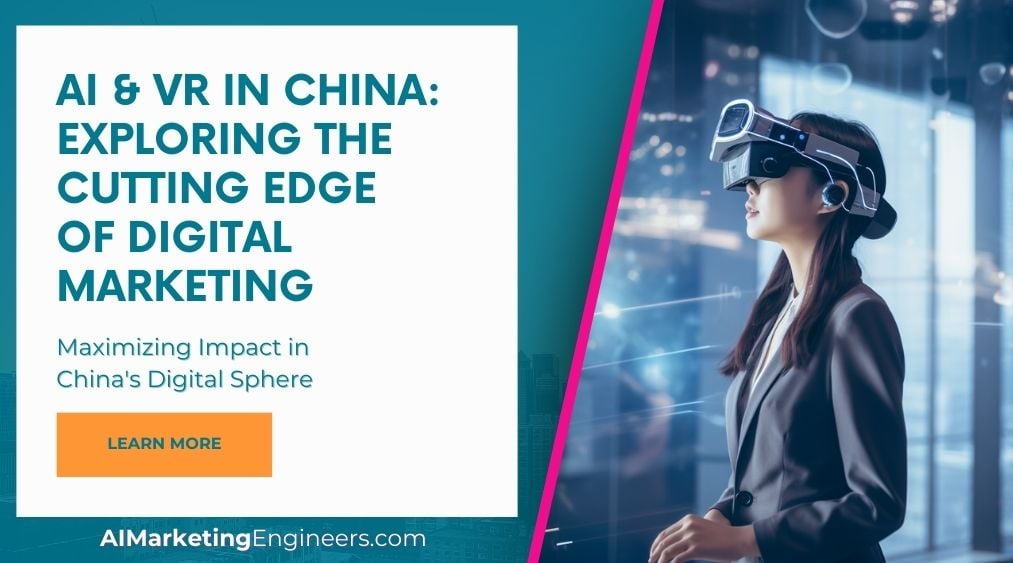Key Takeaways
✅ Creative Campaigns Can Leap Forward With Bold Ideas: Consider how Alec Brownstein spent just $6 on a clever PPC campaign targeting creative directors, resulting in a surprisingly high return with job interviews and offers. Get inspired by The Perfume Shop, which smartly used YouTube video targeting ads, showing that creative alignment with content and audience can amplify your campaign's reach.
✅ Versatile Pricing Models Reflect a Dynamic Industry: Thriving PPC agencies understand one size doesn't fit all. With flexible pricing models, from flat fees to performance-based structures, you can find a partnership that aligns perfectly with your business goals. It's about matching your budget to an agency's expertise for an efficient path to your targets.
✅ Immediate Visibility and Measurable Outcomes: Unlike the slow-burning strategies of SEO, PPC offers the sprinter's path to visibility. With real-time tracking and analytics, PPC campaigns deliver tangible results swiftly, allowing for nimble shifts in strategy to outpace competitors and capture your audience's attention.

Introduction
Ever wonder how some businesses seem to dominate the online advertising game, showing up everywhere at just the right time? What's their secret? Well, more often than not, they're leveraging the skills and strategies of a top-notch pay-per-click company. But what makes these firms so effective at what they do?
From Alec Brownstein's job-hunting genius to The Perfume Shop's targeted approach on YouTube, these stories are more than just successful case studies – they are a treasure trove of lessons in the art of visibility and precision in a crowded digital space.
In the following article, you'll be walked through the inner workings of what sets leading PPC companies apart from the pack. We're going to look beyond the curtain at industry leaders who've mastered the complexities of pay-per-click marketing and dissect how they deliver lightning-fast results that are also firmly anchored in solid data. Expect to leave armed with a wealth of knowledge – and maybe even that elusive strategy that will catapult your PPC efforts into the stratosphere. Stay tuned, because we're about to uncover actionable insights and groundbreaking information that could redefine your digital advertising approach.
Top Statistics
| Statistic | Insight |
|---|---|
| $190.5 billion: Projected global spending on search advertising in 2024. | This statistic highlights the enormous scale of the PPC advertising industry and the anticipation of its growth over time. |
| 72%: Companies that haven’t reviewed their ad campaigns in over a month. | Regular ad review is vital for maintaining efficiency and relevance. This number underscores a huge opportunity for companies to improve campaign performance. |
| $146 billion: Mobile advertising spend projected for 2023. | Mobile continues to be a key platform for advertising, emphasizing the need for PPC companies to optimize for mobile devices. |
| 53%: PPC ad clicks from mobile devices. | Mobile dominance in PPC is clear with over half the clicks coming from mobile, portraying the shift in user behavior to mobile-first. |
| 3.5%: Conversion rate on Google Ads. | The conversion rate suggests effectiveness and hints at the potential ROI businesses can expect from Google Ads-centered campaigns. |
What is a Pay-Per-Click Company?
A Pay-Per-Click (PPC) company is like a maestro conducting an orchestra, only instead of instruments, they harmonize keywords, ad copy, and bids to create a symphony of clicks and conversions for businesses online. They are the wizards behind the curtain who fine-tune your paid advertising efforts to ensure your ads appear to the right people at the right time. By doing complex things like keyword research, crafting tailored adverts, managing how much you spend on each click, and keeping a watchful eye on the performance, these companies help breathe life into your online sales and marketing strategies. The end goal is simple: drive worthwhile traffic that turns into business.
Industry Leaders in PPC
Leading the pack in the PPC domain are companies such as Adzooma, Hawksem, and DesignRush. With their fingers firmly on the pulse of the latest trends and a knack for numbers, these agencies boast of turning the digital clicks into real-world customers. They ride the edge of PPC advancements, continually refining their strategies to ensure that every penny you spend works as hard as it can. These industry leaders come armed with case studies and testimonials that speak volumes of the traffic they've directed towards their clients' websites and the conversions they've influenced.
Successful PPC Campaign Examples
Remember Alec Brownstein's cheeky job search strategy? With just $6, Alec placed bets on the names of big-wig creative directors, which led to interviews and job offers, an ingenious use of PPC for personal branding. Then there's The Perfume Shop, which brilliantly targeted ads on celebrity videos on YouTube, tapping directly into their audience's interests. And let's not overlook Converse, who sparked conversations with their ads, leading people to interconnected sites filled with engaging content. Stories like these underscore the power of a strategically placed ad and highlight the potential ROI that can be achieved with a smart PPC strategy.
Key Services Offered by PPC Companies
Roll up your sleeves and dive into the key offerings of PPC companies: keyword research and optimization to get your ads in front of eager eyes, ad copy creation that sticks with your audience, and bid strategies that stretch your dollars further. But it doesn’t stop after setting up campaigns; it’s about performance tracking and analysis, where data is king. These services are the cornerstones of what a PPC company brings to the table, ensuring that the campaigns not only start strong but also adapt and evolve based on real-world data.
Benefits of Working with a PPC Company
When you partner with a PPC company, you're tapping into a reservoir of expertise that can transform a mediocre advertising campaign into a powerhouse of profit. These companies bring a level of expertise that's hard to replicate internally, they offer cost-effectiveness by avoiding the pitfalls of unoptimized spending, and, importantly, they're a time-saver. Your marketing team won't be bogged down with the ins and outs of PPC; instead, they’ll have more time to focus on the big picture. With their meticulous measurable results, PPC professionals can tell you not just how your campaigns are doing, but how to make them do even better.
Choosing the Right PPC Company
Looking for the right PPC partner is akin to finding the perfect fitting shoe. It’s essential to consider their experience and proven record of successes. Look closely at the services offered to make sure they match what you're looking to achieve with your campaigns. Don't forget to delve into their pricing models; it should feel comfortable for your budget and feel right for the goals you're looking to hit. Choosing the right PPC company is about aligning your advertising needs with their ability to deliver effectively and efficiently.
AI Marketing Engineers Recommendation
Recommendation 1: Partner with a Proven PPC Agency for Expertise and Results: When diving into the world of Pay-Per-Click advertising, partnering with a proven PPC agency can make a significant difference. Agencies like WebFX and WordStream have established themselves as industry leaders through years of delivering outstanding results for their clients. These firms bring a wealth of expertise, leveraging advanced tools and strategies to maximize ROI. By working with a reputable PPC agency, businesses can benefit from their deep understanding of market trends, competitor analysis, and keyword optimization. This partnership allows companies to focus on their core operations while the agency drives traffic and conversions through meticulously crafted PPC campaigns.
Recommendation 2: Utilize Comprehensive PPC Tools for Effective Campaign Management: Effective PPC campaign management requires the use of robust tools that offer comprehensive analytics and optimization capabilities. Tools like SEMrush, Google Ads, and Marin Software are essential for monitoring campaign performance, conducting keyword research, and managing bids efficiently. These platforms provide detailed insights into click-through rates, conversion rates, and cost-per-click, enabling marketers to make data-driven decisions. Incorporating these tools into your PPC strategy ensures that campaigns are continuously optimized for better performance, leading to higher engagement and improved ROI. Additionally, regular training on these tools can keep your team updated with the latest features and best practices.
Recommendation 3: Learn from Successful PPC Case Studies for Strategy Inspiration: Studying successful PPC case studies can provide valuable insights and inspiration for your own campaigns. Companies like Amazon, which dominates the e-commerce PPC landscape, and Warby Parker, known for its innovative online eyewear marketing, offer great examples of how effective PPC strategies can drive business growth. These case studies highlight the importance of precise targeting, creative ad copy, and continuous optimization. By analyzing what worked for these industry leaders, businesses can adapt similar tactics to their own marketing efforts. Implementing lessons learned from these case studies can help in crafting compelling ads that resonate with the target audience, ultimately boosting conversions and revenue.
Relevant Links
- Revolutionize Digital Marketing with AI Technology
- Dominate Baidu with Advanced SEO Strategies
- Catapult Your PPC Campaigns to Success in China
- Elevate ROI with Performance Marketing Strategies in India
- Harness Big Data to Shape Your PPC Campaigns in China
Conclusion
In exploring the dynamic and results-driven world of Pay-Per-Click (PPC) advertising, we've uncovered the essence of what a PPC company does and the influential players leading the charge in this marketing method. Reflecting on examples set by companies like Adzooma, Hawksem, and DesignRush, it becomes clear that the expertise these agencies offer can significantly boost a brand's visibility and impact online through strategic ad placements and targeted campaigns.
Successful stories like Alec Brownstein's innovative job search and The Perfume Shop's creative YouTube targeting show us the powerful applications of PPC when tactics are both clever and well-executed. Moreover, Converse's engaging conversational ads set a benchmark for how interactive and content-rich experiences can captivate the intended audience. These examples serve as inspiration for what can be achieved with smart PPC strategies.
Engaging a PPC company can offer you expert guidance, save you precious time, and provide the crucial benefit of measurable results—three keystones for any business aiming to thrive in the digital landscape. To ensure your investment in PPC garners the dividends you desire, paying close attention to an agency's experience, range of services, and pricing models is imperative. So, as we look towards growing our businesses in the digital realm, let's consider the remarkable potential that lies in choosing the right PPC company to partner with. It's not just about increasing clicks; it's about making every click count towards your brand's success story.
FAQs
Question 1: What is a PPC company?
Answer: In simple words, a PPC company is a group of folks who are pretty handy at getting your ads in front of the right eyes on the internet. They put your business on the digital map by making sure that when someone is searching for what you offer, your website shows up loud and clear.
Question 2: How does PPC make that happen?
Answer: Imagine you're at an auction, but instead of bidding on a vintage guitar or a piece of art, you're bidding on words. Yes, words. These are the specific things that people type into search engines when they're hunting for something. If your bid wins, your ad cozies up right next to the regular search results.
Question 3: What's so great about PPC campaigns?
Answer: It's like having a nitro boost for your website traffic. It's fast, you can tell exactly what you're getting out of it, you've got a firm grip on your wallet, and you can change course quickly if the wind shifts. Plus, it puts your name up in lights for all to see.
Question 4: What kind of wallet dent are we talking about with PPC agency pricing?
Answer: It's not one-size-fits-all. Some agencies take a slice of your ad budget, others charge a flat rate, and some will talk numbers only if they get you results. Then there are those who bill you by the hour or per project.
Question 5: How do PPC agencies make sure those ads work like a charm?
Answer: It's a bit like gardening. They plant the right keywords, water them with slick ad text, and prune 'em to keep them healthy. Agencies keep an eye on how things are growing and tweak as needed. It's all about getting those lush clicks blossoming into actual customers.
Question 6: Landing pages: Why are they a big deal in PPC?
Answer: A landing page is where the magic happens—it's your digital handshake. When people click on your ad, they expect to be whisked away to a page that answers their questions and nudges them to act. Get it right, and you've got a new fan. Mess it up, and it's like a bad date—they'll click away before you can say "But wait, there's more!"
Question 7: How on earth do I choose the right PPC agency?
Answer: Trust your gut and do your homework. Look for ones that know their stuff, have happy customers, and won’t make your bank account weep. The golden rule? They should get you and be excited about pushing you to the top.
Question 8: Got any PPC campaign success stories?
Answer: Sure do! Remember when sneakers and chocolate bars popped up in searches for trendy kicks and typos? Those clever cookies made their mark and got people talking—and clicking!
Question 9: How will I know if my PPC campaign is a rockstar or a flop?
Answer: Keep your eye on the prize: conversions, how much you're spending to get leads, and the almighty ROI. If the numbers are heading north, throw a party. If not, it's back to the drawing board.
Question 10: Any ‘oopsies’ I should steer clear of with PPC?
Answer: Oh, there are booby traps for sure. Watch out for clunky landing pages, ads as dull as dishwater, and spraying your ads to the four winds hoping they’ll stick. Plan carefully, execute with finesse, and always, always keep an eagle eye on your ad’s voyage.

Academic References
- Mordkovich, B., & Mordkovich, E. (2005). Pay-per-click search engine marketing handbook. This handbook delivers a thorough exploration of PPC marketing, equipping readers with strategies and best practices to enhance their online advertising efforts.
- Midha, V. (2009). The glitch in online advertising: A study of click fraud in pay-per-click advertising programs. Journal of Business Ethics, 90(4), 525-537. Midha's study addresses the critical problem of click fraud in PPC advertising, revealing its effect on advertisers and the integrity of digital marketing campaigns.
- O'Connor, P. (2009). Pay-per-click search engine advertising: Are hotel trademarks being abused? Cornell Hospitality Quarterly, 50(3), 345-357. O'Connor's research delves into the exploitation of hotel trademarks within PPC campaigns, highlighting areas of concern for trademark owners in the hospitality industry.
- Ragland, K. (2010). Pay per click advertising. A study presenting the foundational elements of PPC advertising, detailing its various applications across industries and the potential benefits for businesses.
- Ryan, D. (2014). Understanding digital marketing: Marketing strategies for engaging the digital generation. Kogan Page Publishers. Ryan's comprehensive book offers insights into the broader spectrum of digital marketing strategies, including the role and impact of PPC in engaging diverse audiences within the digital space.
- Sen, R., Hess, J. D., Bandyopadhyay, S., & Jaisingh, J. (2008). Pricing paid placements on search engines. JOEUC, 20(1), 1-20. This study provides an analytical take on the pricing models for PPC advertising, particularly highlighting strategic considerations for paid placements on search engines.
- Walgampaya, C., Kantardzic, M., & Wenerstrom, B. (2012). Duplicate detection in pay-per-click streams using temporal stateful bloom filters. Informatica, 36(4), 371-378. With a focus on ensuring the authenticity of click data, this study proposes innovative methods for identifying duplicate clicks in PPC streams, thereby contributing to the field's efforts in combating fraud.
- Zhang, L., & Guan, Y. (2008). Detecting click fraud in pay-per-click streams of online advertising networks. The Fourth International Conference on Innovative Computing, Information and Control (ICICIC), Dalian, 23-25. This conference paper introduces advanced techniques for the detection of click fraud, which is vital for upholding the credibility of online PPC advertising networks.











